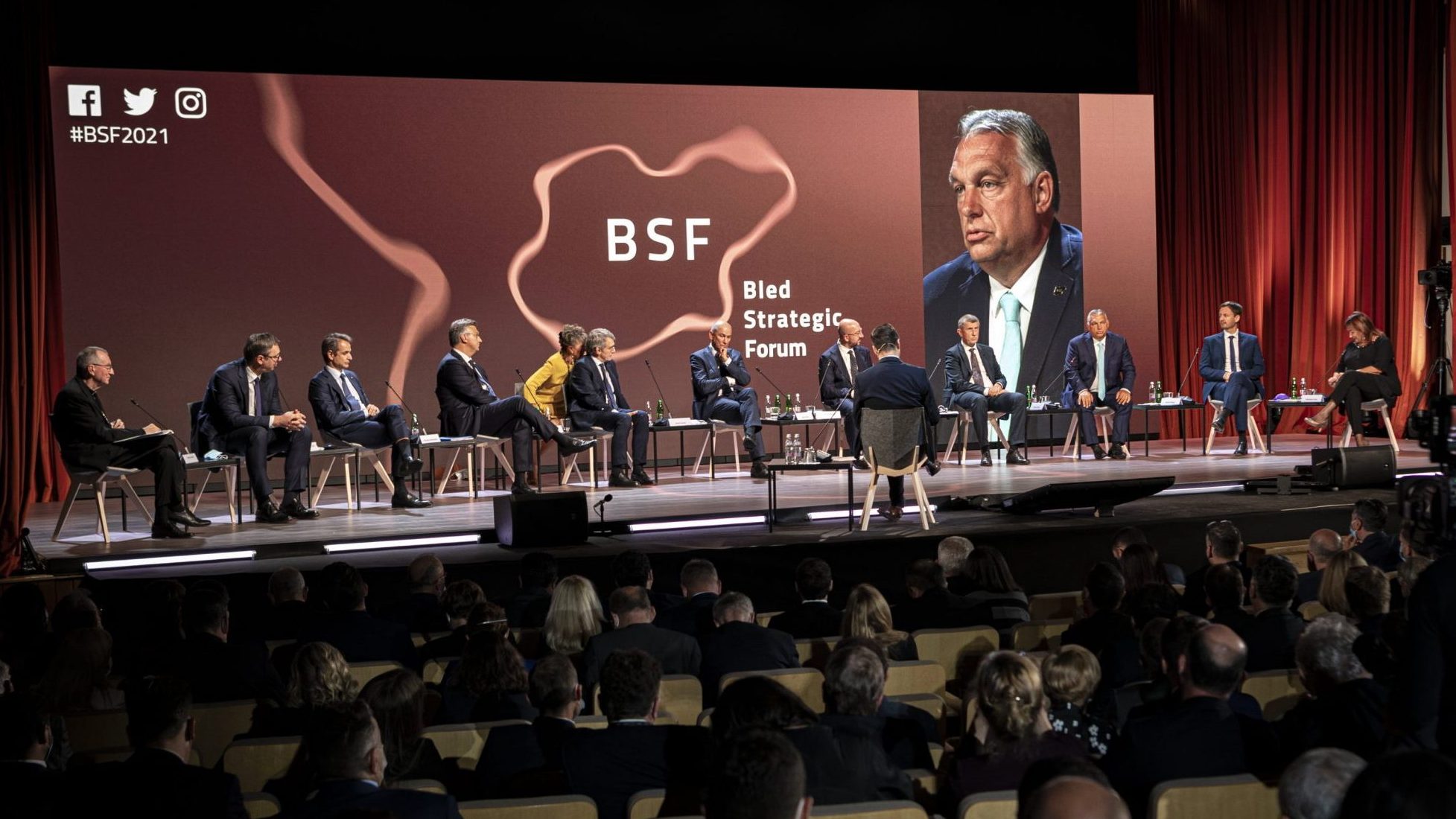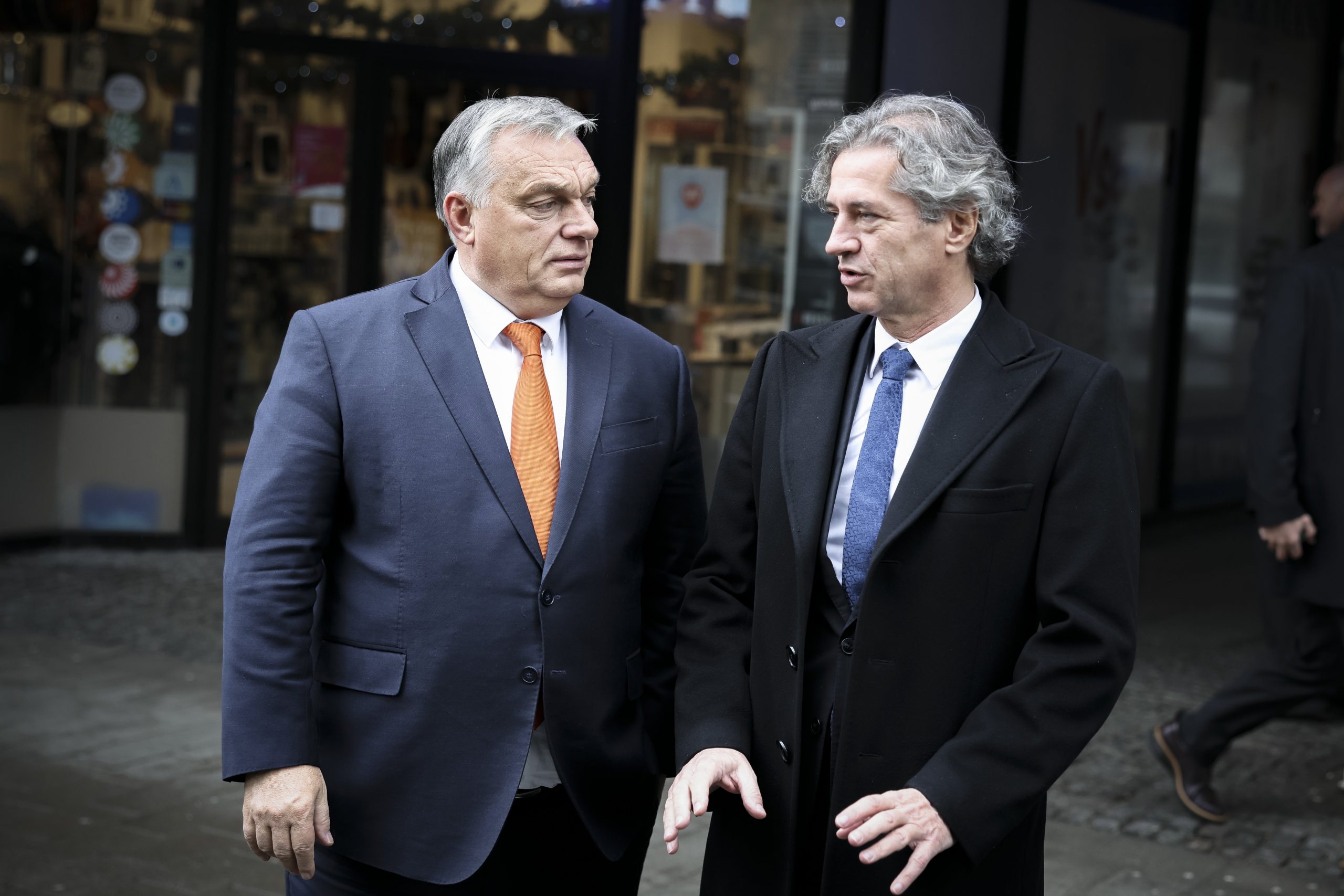
He added that migration cannot be accepted as a solution to demographic problems as the immigrants – who are mainly Muslims – would change our traditional European culture.
He recalled that at the time of the 2015 crisis, he was among the first to draw attention to the fact that the EU’s approach to migration could destroy European culture. Right from the beginning, he was of the opinion that uncontrolled immigration could lead to terrorism and social difficulties, and the EU was not prepared for these, it had no answers. “Migration must be stopped,” he pointed out.
Mr Orbán stressed that due to the situation in Afghanistan, we are now faced with another migration crisis.
He also drew attention to the fact that the debate on immigration caused divisions and difficulties within the EU, and to this day we have failed to bridge the gap between opinions.
Confirming the Hungarian position, Mr Orbán said we do not need migrants coming from outside Europe because they change the composition of European societies, Europe’s cultural identity, and its Christian identity based on families.
He took the view that in this regard the experience of countries which had already been exposed to Muslim occupation during their history such as Hungary is “more relevant” than the experience of those which had not been. The newly arriving migrants are all Muslims.
The central theme of the Bled Forum now held for the 16th time is the future of Europe, economic recovery in the wake of the coronavirus pandemic and the enlargement of the European Union.
Regarding the latter, Mr Orbán said Serbia is a key country, and its EU membership is essential also from a mere geopolitical and security point of view. The European Union needs Serbia’s EU membership more than Serbia does, he said.
In the context of the future of Europe, the Prime Minister stressed that the EU must stay together, in unity. A pre-condition of this is, however, economic success. Without this there is no political basis for the preservation of common values, he pointed out.
In answer to a question, Mr Orbán also highlighted that one of the tasks of political leaders is to help their people to prepare for the future. For this, however, they must understand what our future will look like, which instruments are available for the management of challenges, which instruments are not, and how they can be obtained.
The main purpose of the Bled Forum organised since 2006 is to provide a platform for politicians, diplomats, business experts, company executives and scientists to discuss the challenges facing the continent. In the past ten years, almost 10,000 guests from 100 countries have been invited to the meeting which is regarded by many as the most significant such forum in the Southeast European region.
The Wednesday roundtable discussion was attended by the heads of state and government of several countries from the region, including Slovenian Prime Minister Janez Jansa, Czech Prime Minister Andrej Babis, Slovak Prime Minister Eduard Heger, Serbian President Aleksandar Vucic, Croatian Prime Minister Andrej Plenkovic, Greek Prime Minister Kyriakos Mitsotakis, Charles Michel, President of the European Council comprising the leaders of EU Member States, President of the European Parliament David Sassoli, Vice President of the European Commission for Democracy and Demography Dobravka Suica, and Cardinal Secretary of State of Vatican City Pietro Parolin.

